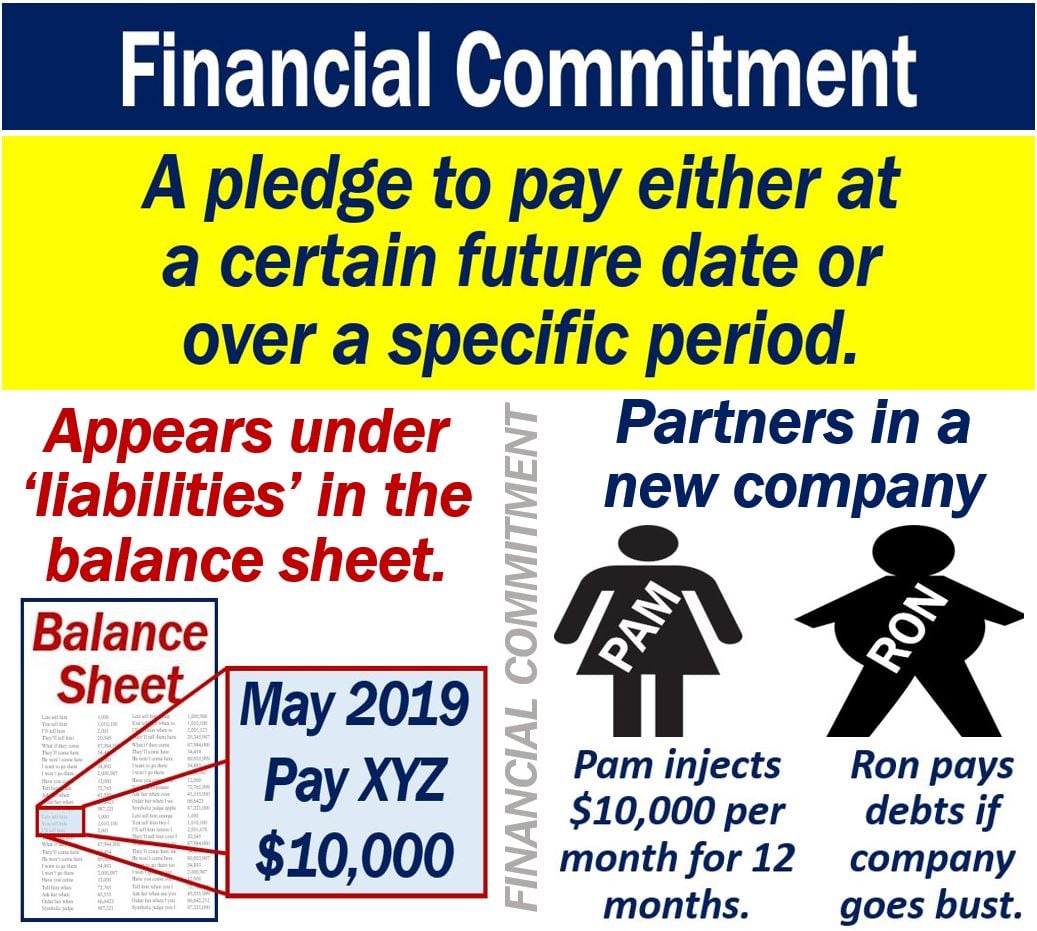A Financial Commitment is a commitment to an expense at a future date. We may use the term for either a major expense or an ordinary one. Depending on the situation, the term may refer to either a very long-term commitment or a one-off payment. Financial commitments exist in both the business and non-business world.
Even if the payment has not yet occurred, in accounting, we enter it as a liability on the balance sheet. The moment the company incurs the expense, it becomes a liability.
A balance sheet shows the company’s financial status at a particular moment in time. It is a snapshot of a business’ finances on a given date.
Put simply; a financial commitment is a pledge to pay something on a future date or over a specific period.
Financial commitment to a supplier
When we send a supplier a purchase order, for example, there is a financial commitment on our part. We pledge to pay on a specific future date.
Some financial commitments may have an expiration date. Others, however, are ongoing and have no specific termination date.

If a party with a financial commitment reneges, i.e., does not pay, they may face a lawsuit.
Financial commitment – a new company
When a new company opens, its owners enter into a financial agreement with each other. Their commitments also extend to the business.
Some owners may commit to investing a regular sum into the company over a specific period.
Others, on the other hand, may assume responsibility for some of the company’s debts if it becomes insolvent. When a company is insolvent, it cannot pay its bills.
Financial commitments can influence an organization’s strategic decisions, as they often dictate the allocation of future resources and can impact the company’s ability to invest in new projects or ventures.
Financial commitment with lenders
If you apply for a loan and the bank approves, there are subsequently two financial commitments.
The lender commits to giving your access to funds either immediately, at a certain date, or when you need it.
You also have a financial commitment. Yours is to pay back the money that you have borrowed. Specifically, your commitment is to pay back according to the specifications in the contract that you signed.
A long-term responsibility
Let’s imagine that John and Mary’s baby girl was born today. As soon as the baby was born, they entered a long-term commitment to raise their child, feed her, pay for her clothes, food, education, etc.
When their daughter grows up, they may also help her buy her new home.
This is a very long-term commitment. A financial commitment can have this meaning. In other words, a commitment to pay somebody’s or something’s bills over a very long period.
When you open your own business, there is a financial commitment. That commitment might continue for a long time.
